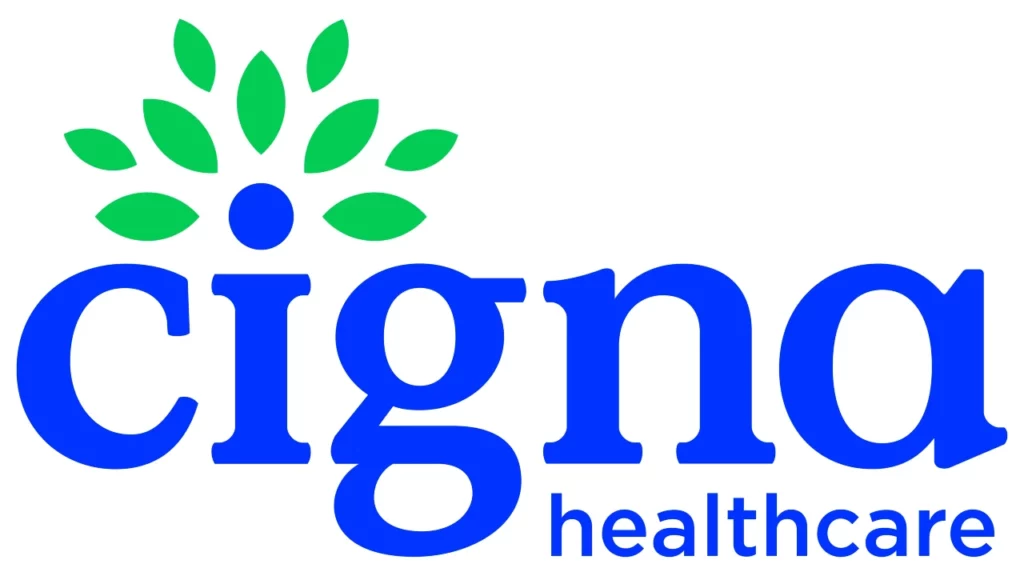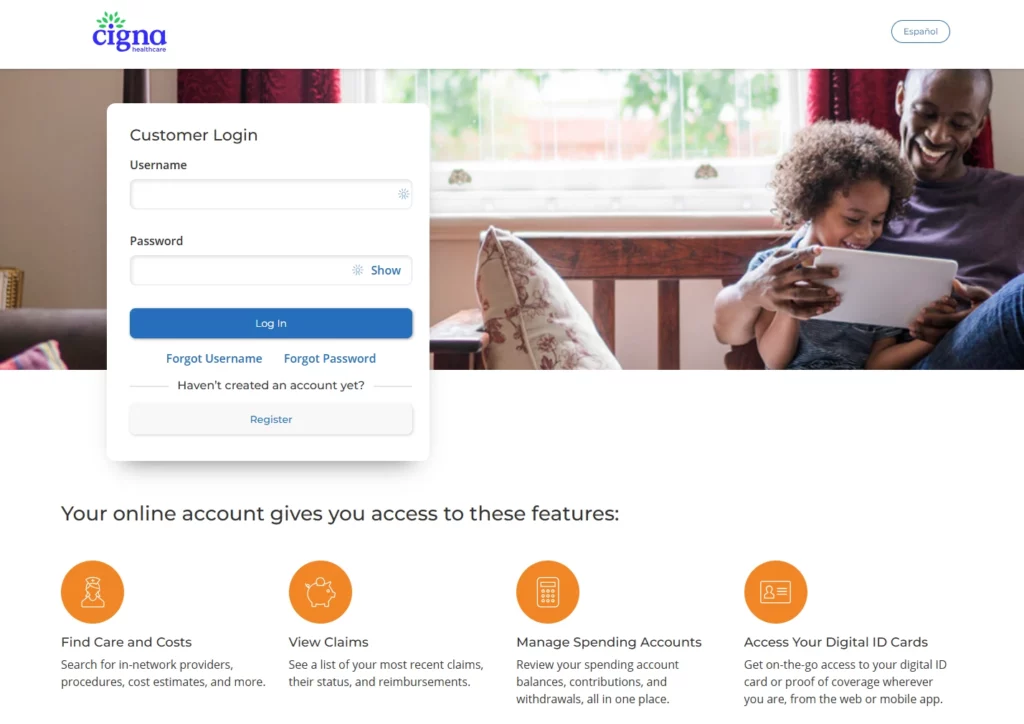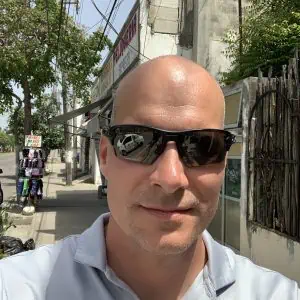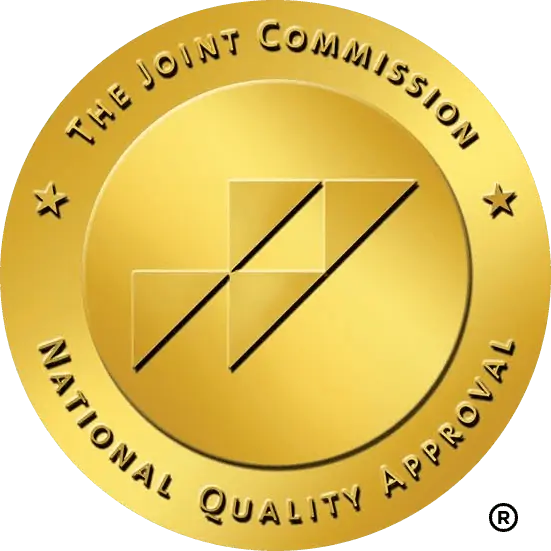How to Maximize Your Cigna Benefits for Teen Residential Treatment
If your teen struggles with anxiety, depression, or other mental or behavioral health conditions, finding the right treatment is hard enough for a parent.
To complicate matters, understanding how much of the treatment is covered by health insurance and how much of it will be an out-of-pocket expense is an important consideration and a part of the equation that can derail a parent from making the best medical treatment decision.
Maximizing your Cigna benefits for teen residential treatment programs can significantly ease this burden, ensuring that your child receives the best possible care without overwhelming financial stress.
In this article, we take a close look at Cigna Health coverage for mental health and residential treatment.
We will be breaking down the essentials in a clear and easy-to-understand way while also making you aware of the possible roadblocks on your path to getting the best mental health treatment for your teen.
To learn about health insurance coverage for teen mental health, explore our related articles covering Aetna, Tricare and Blue Cross options.

Why Teen Mental Health Treatment is More Urgent than Ever
First, it is important to understand that today, more teens are in need of mental health treatment than ever before. There has been a significant increase in adolescent pressures, resulting in higher incidents of emotional and behavioral challenges.
The Surgeon General has declared teens’ mental health crisis an epidemic.
Today’s teens face unprecedented challenges, including:
- Increased pressure to excel in school.
- Social media overuse and constant online interactions.
- Rising rates of bullying and co-occurring conditions.
“These stressors have created a mental health crisis unlike any we’ve seen before.”
According to Pewresearch.org, 69% of parents say it is harder to be a teenager today than ever.
Why Parents Need to Recognize the Signs of Mental Health Distress in Teens
With the added pressures and challenges facing teens today, it is more important than ever before for parents to recognize the signs of mental health distress. This includes understanding the signs of co-occurring conditions or dual diagnoses.
The signs to look for include:
- changes in behavior
- mood swings
- withdrawal from activities.
Recognizing the signs of mental health distress will help you intervene earlier and reduce and, in some instances, prevent high-risk situations and life-threatening crises.
As a result of the aforementioned teen mental health crisis, health insurance providers like Cigna, Aetna, Blue Cross, and others have expanded their coverage for teen mental health treatment options.
Furthermore, recent changes in law and efforts to make mental health treatment more accessible now follow the same rules as physical health coverage. This means that insurance companies are required to cover expenses for the treatment of mental disorders and psychiatric conditions listed in the DSM5 diagnoses.
Are you concerned that your teenager will refuse treatment? This article by Cigna Healthcare, “Teens: Things That Get in the Way of Mental Health Care,” is an excellent resource for helping parents understand why teens are reluctant to seek mental health care and how to discuss options with their teenagers.
Understanding Cigna's Mental Health Coverage for Teens
Cigna Health is the fourth-largest health insurance provider in the United States, and over 33 million Americans rely on it as their primary health insurance.
Access to Cigna health benefits relies on various factors like:
- your particular insurance policy
- the type of plan (HMO, PPO, etc.,)
- in-network or out-of-network.
- state laws and mandates
Cigna offers health coverage for teen mental health treatment. Including residential treatment for behavioral and emotional diagnoses.
However, trying to decipher what is the treatment and therapy options that are approved and the limitations for inpatient treatment and coverage for adolescent rehab can be very confusing.

What Cigna's Behavioral Health Benefits?
Cigna provides teen behavioral health benefits such as:
- Therapy for adolescents, including Cognitive Behavioral Therapy (CBT) and Dialectical Behavioral Therapy (DBT)
- Family therapy to support the whole household
- Psychiatric evaluations and medication management
- Residential treatment centers, inpatient care and inpatient acute treatment (depending on medical necessity and plan details)
- Substance use treatment
- Behavioral health psychotherapy and treatment, including access to treatment facilities like Turning Winds.
- Online therapy and telehealth options
Understanding these coverage options empowers parents to make well-informed decisions about the appropriate level of care their child requires.
What Parents Need to Know About Cigna Mental Health Coverage for Teens
The answers to these questions will empower you to make well-informed decisions about the level of care your child needs.
- Does Cigna cover therapy?
- Does Cigna cover residential treatment?
- What are the reimbursement rates for psychotherapy?
- What mental health therapies are covered by Cigna?
- What is the maximum length of stay in a residential treatment covered by Cigna health insurance?
Are you ready to understand your Cigna benefits and explore treatment options available to your child?
Our experienced admissions team can help! We’ll review your plan documents with you and provide personalized guidance on utilizing your Cigna behavioral health coverage for adolescent residential treatment.
Cigna Behavioral Health Benefits
Cigna provides comprehensive behavioral health benefits specifically for teenagers. Furthermore, Cigna Health understands there’s no one-size-fits-all approach to teen mental health treatment. They support the need for personalized treatment plans and targeted interventions for a teen’s specific behavioral or mental health needs.
How the Turning Winds Admissions Team Can Help
We understand getting insurance approvals and coverage is a major hurdle when seeking and choosing adolescent residential treatment. That’s why our admissions team works directly with Cigna’s customer service on your behalf to:
- Verify your benefits: We’ll help you understand exactly what your Cigna policy covers for residential treatment.
- Explain your options: We’ll clarify your treatment choices and help you make informed decisions.
- Streamline the process: We’ll assist with pre-authorization and other administrative tasks, making the admissions process as smooth as possible.
With our support, you can focus on what matters most: getting your teens the help they need faster and with less paperwork.
Would you like to know what behavioral health benefits your Cigna insurance plan offers for residential treatment?
Find Out Now!

Residential Treatment for Teens: Cigna Coverage Details
Cigna’s Commitment to Teen Mental Health Services
If Cigna Health is your insurance provider, you can rest assured that there are help and medical treatment options available for your teen. The two types of care most relevant to residential treatment for teenagers are:
- Acute Inpatient Care: This particular level of care is specifically designed for adolescents who are currently experiencing a mental health crisis marked by severe symptoms that require immediate attention and intervention. In such cases, your teen may require 24 hours a day, 7 days a week of medical monitoring and support.
🩺 Best for: Suicidal ideation, self-harm, psychosis, or extreme emotional distress.
- Residential Treatment: In contrast, residential treatment offers the highest level of care available, providing round-the-clock support and a comprehensive array of therapeutic services within a structured living environment. This treatment option is especially suited for teenagers who are facing severe or complex mental health conditions that cannot be effectively managed in less intensive settings.
📌 Did You Know? Teens typically spend 6-9 months in residential treatment centers (RTCs), providing them with the time and support needed to recover and develop essential coping skills for life.
Cigna understands the importance of accessible behavioral and mental health care, offering coverage options that remove barriers to vital mental health services for teenagers.
The Scope of Cigna’s Mental Health Benefits for Teens
The scope of Cigna’s mental health coverage ensures teens have:
- access to necessary treatments
- timely intervention and support for evolving needs
- resources to help families navigate mental health treatment options

Cigna's Mental Health Coverage at Turning Winds
Turning Winds not only fulfills Cigna’s treatment standards, but we also surpass them in delivering residential care for teenagers requiring intensive support beyond outpatient services.
According to the Cigna benefits guide, a treatment program should address the mental health, physical well-being, and educational development of adolescents. And, must include intensive mental health care, medical services, and access to appropriate educational resources. Turning Winds meets all of these requirements.
Cigna requires treatment centers to provide:
- Individual Therapy: Provided at least once a week, with increased frequency as needed based on clinical recommendations.
- On-Site Nursing Support: A nurse is available 24/7 to deliver psychiatric nursing care, including constant monitoring, crisis intervention, and medication administration when clinically necessary.
- Physician Oversight: A physician conducts evaluations at least once weekly or more frequently if required.
- Psychiatric Care: A psychiatrist is accessible 24/7 to assist in crisis situations, assess and manage psychiatric or medical concerns, and prescribe medications as needed.
Their benefit guides also states that the primary goal of treatment should be to achieve stabilization, enhance functioning, and prepare for reintegration with family or guardians. These three specified “goals” are at the heart of our unique hybrid approach to residential treatment.
Cigna also states that a treatment center must offer:
- Transitional Focus: Residential treatment is a temporary step toward returning the teen to their everyday life (community) with continued support at a lower level of care if necessary.
- Coverage Based on Medical Necessity: Residential treatment has no fixed duration. Each individual’s progress is evaluated to determine the appropriate length of stay, ensuring that treatment is tailored to their specific needs rather than following a pre-set timeframe.
Why Choose Turning Winds as Your Teen’s Residential Treatment
Parents should choose Turning Winds because we exceed Cigna’s treatment standards. We specialize in working with teenagers who require an intensive level of support. We offer a therapeutic environment with 24/7 care, a well-supervised, structured setting, multiple therapies, and a distraction-free healing environment. And, above all, we have the experience and the staff to provide the highest level of care and have been doing so for over twenty years.
We treat teenagers with the following:
- Severe depression
- Anxiety disorders
- Substance misuse
- (OCD) Obsessive Compulsive Disorders
- Personality disorders
- Trauma-related disorders, like PTSD or complex trauma
- Mood disorders with severe symptoms like bipolar disorder
- ADHD, ASD and other Pervasive Developmental Disorders
- Self-harming behaviors and Suicidal Ideation
Turning Winds and Cigna: A Successful Partnership
Turning Winds has been helping families for over 20 years and during that time, we have successfully worked with Cigna Health and provided essential residential treatment to many teens that presented the conditions listed above.
We can assist you in ensuring that your child’s treatment aligns with Cigna’s requirements, thus expediting coverage decisions by:
- Obtaining Pre-Authorization: Our admissions team will work with Cigna to obtain pre-authorization before admission.
- Prescribed Stay Length Limits: We work with Cigna to ensure that your child’s coverage is maximized as needed and not automatically capped at a specific number of days, like 30-90 days. Because the length of stay is prescribed by medical necessity, we’ve had instances where the entire stay has been covered by insurance, and some portions of treatment or therapies are covered. Again, it all depends on your policy, but we will work with you and Cigna to ensure your child’s coverage depends on their specific needs.
- In-Network vs. Out-of-Network Facilities: The residential treatment center (RTC) classification varies. If your insurance plan classifies us as an out-of-network provider, you can still receive reimbursement for services by submitting forms, and we will help you with that process.
- Medical Necessity Determination: Cigna requires proof of medical necessity. Our clinical team will provide updates and information as needed to ensure Cigna has what it needs to determine.
Cigna Insurance and Therapy: Understanding Your Out-of-Pocket Costs
We can’t know ahead of time what percentage of the therapy cost or the inpatient stay will be covered by your Cigna plan since this is dependent on many factors like:
- Deductibles: The amount a family must pay before coverage kicks in varies by policy.
- Copays and Coinsurance: A fixed amount or percentage per therapy session, which typically ranges from $15 to $50 per session.
- Out-of-Pocket Maximums: Once a family reaches this limit, insurance covers the rest of the costs for the year.
How to Access Cigna's Teen Mental Health Treatment Benefits

Steps to Verify Your Cigna Mental Health Benefits
Understanding what your plan covers before committing to treatment can prevent unexpected costs. Parents should:
- Log into their myCigna account – Review mental health benefits and policy details.
- Check the Summary Plan Description (SPD) – This document outlines specific coverage limits.
- Contact Cigna’s Customer Service – Ask about pre-authorization, provider networks, and reimbursement policies.
- Consult with our Admissions Team – We can alleviate your stress during this situation by working with Cigna on your behalf to help verify coverage. To start the process please complete this form:
Many families tell us that our guidance is invaluable in navigating the complexities of mental health care and treatment. From helping with pre-authorizations to assisting parents in appealing decisions by providing documentation and revised treatment plans as needed. We are committed to providing clear communication and proactively addressing insurance challenges to ensure your teen receives the highest quality care.
Denied Claims, Limited Coverage: Tackling Common Insurance Issues for Teen Mental Health
We believe transparency is key to any relationship, so we want you to know that sometimes families encounter insurance roadblocks. To help you prepare to tackle these challenges as they arise. We want to quickly discuss the most common obstacles and unexpected restrictions placed by health insurance companies along with how to address them:
- Denied Pre-Authorization: If Cigna denies a request for residential treatment, please understand that you have the right to appeal the decision. The appeal often requires you to provide additional documentation from a licensed mental health professional like a psychiatrist, psychologist, licensed clinical social worker (LCSW), or psychiatric nurse practitioner.
- Limited Coverage for Therapy Sessions: As mentioned previously, some plans restrict the number of covered therapy sessions per year. If more treatment is needed, asking about exceptions based on medical need is an option, as is filing a claim for out-of-network reimbursement.
- High Out-of-Pocket Costs: The cost of treatment, especially for an extended period of time, can be high. We advise parents to consider financial assistance programs or find other funding sources to help cover the expenses that are not covered by insurance.
The Role of Family in Teen Mental Health Treatment
Parents play a central role in their teen’s recovery. Supporting a child through mental health treatment isn’t just about securing insurance coverage. It’s about staying engaged, learning new strategies, participating in family therapy sessions, and reinforcing progress made in therapy.
Cigna recognizes the importance of family involvement and may cover family therapy sessions as part of a teen’s treatment plan. Engaging in this process helps create a stable, supportive environment that can make all the difference in a teen’s long-term success.
Final Thoughts: Making the Most of Cigna’s Mental Health Benefits
Sorting through insurance coverage can feel like wading through red tape, but securing the right care for your teen is worth the effort. If your teen requires residential treatment or other intensive care, we at Turning Winds are here to help. Contact us to get help with insurance verification and discussing financial options for treatment. We can also connect you with transportation teams, and help you arrange to have your teenager directly transferred directly from a hospital or other short-term program to our treatment facility in Montana.
Take the first step today—contact us to explore treatment options for your child covered by Cigna.
〈 Key Takeaway 〉
Cigna’s Mental Health Coverage for Teens
- Cigna offers coverage for various mental health services tailored for teens, including therapy sessions, counseling, and inpatient or outpatient treatments.
- Coverage specifics can vary based on individual plans and regional policies.
Verification of Benefits
- Parents need to verify the benefits of their specific plan.
- Contacting Cigna directly or consulting with treatment providers can help determine the extent of coverage and any potential out-of-pocket expenses.
Turning Winds’ Collaboration with Cigna
- Turning Winds accepts health insurance as a form of payment for treatment. We work closely with major insurance providers, including Cigna, to facilitate access to necessary mental health services for struggling teens.
- The admissions team at Turning Winds can assist parents in understanding mental health coverage and health insurance details. We want to ensure your family maximizes their benefits.
FAQs on Cigna's Teen Residential Treatment Coverage
Does Cigna cover residential treatment for teens?
The answer is YES. Cigna covers residential treatment for teens. However, they rely on “medical necessity,” meaning your teen’s condition must meet a criteria. For example:
- Is your teen at risk of harming themselves or others?
- Is there severe “functional” impairment,
- Have they failed to respond to other types of treatment, like outpatient therapy or short-term treatment?
What different types of teen residential treatment programs are covered by Cigna?
Cigna covers various types of residential treatment programs for teens, including:
Substance Use Disorder Treatment: Programs that provide a structured environment for teens struggling with substance use, including detoxification, therapy, and support groups.
Mental Health Residential Treatment: Programs focused on treating mental health conditions such as depression, anxiety, and other psychiatric disorders.
Dual Diagnosis Treatment: Programs that address both substance use disorders and co-occurring mental health conditions simultaneously.
Therapeutic Boarding Schools: Residential schools that combine education with therapeutic interventions for teens with behavioral and emotional challenges.
Specialized Programs: Programs tailored to specific needs, such as eating disorders, trauma, or developmental disorders.
These programs typically include group therapy, individual counseling, educational support, and family involvement to ensure comprehensive care.
Contact us to verify your insurance coverage.
Turning Winds: A Unique Solution
Turning Winds is a unique hybrid of a therapeutic boarding school and residential treatment center that treats behavioral and mental health. We also help teens who struggle with substance misuse, conduct disorders and technology dependency.
What are Cigna's requirements for mental health treatment authorization (especially for residential treatment)?
Cigna typically requires prior authorization for mental health treatment, especially for residential treatment programs.
Key steps and requirements:
- You must have a referral or recommendation from a mental health professional
- You need a treatment plan. This is a document that outlines the treatment, duration and expected outcomes.
- Your healthcare provider must submit these documents to Cigna for prior authorization.
- Cigna will review the treatment plan. They want to ensure it is medically necessary (reference the DMS-5) and that your specific health plan covers the recommended treatment.
If your teen treatment is approved, you can proceed. If it is denied, your provider can appeal the decision. Usually, this means they must provide more detailed information and documentation.
What will be my out-of-pocket costs for teen mental health treatment with Cigna?
While the exact cost will depend on your child’s treatment plan and specific needs, you can expect some out-of-pocket expenses. These may include:
- Copayments: Fixed fees for services like therapy or medication.
- Coinsurance: A percentage of the cost you share with Cigna after meeting your deductible.
- Deductible: The amount you pay before Cigna coverage kicks in.
- Out-of-Pocket Maximum: The most you’ll pay in a year for covered services.
📌 Remember: Your Cigna plan details will outline these costs. We can help you check your plan and contact Cigna for personalized information.
Turning Winds & Health Care Insurance Coverage
We are here for you! We work with most major insurance providers, including Aetna, to make the process as smooth as possible for families. We have in-house experts that work closely with:
- Aetna
- Blue Cross/BlueShield
- Cigna
- HealthNet
- UMR
- PacificSource
- Tricare
Contact us or use our verify insurance tool to verify your mental health benefits.
Other Resources for Parents
- National Alliance of Mental Illness
- Youth.gov Mental Health
- You may find this “Guide to Mental Health & Substance Abuse Benefits” by SAMHSA helpful.
- Hot-line for parents of teens who encounter denials, delays and insurance obstacles – 1(800) 444-EBSA










